Gardening with Chickens: How to Use Your Flock for Manure, Natural Tilling, Pest Control, and More
With more and more people staying at home amidst the pandemic, gardening isn’t the only thing that’s become more popular. Raising chickens seems to be a natural next step for many gardeners. Gardening with chickens goes hand in hand!
If you’re like me, you start raising chickens because you want eggs, right? But, as I’ve learned over the years, when it comes to the garden and chickens, the eggs are just a bonus. Chickens earn their keep in multiple ways in the garden — from their manure to how they work in the garden during the off-season. But how do you take full advantage of these benefits your chickens can offer your garden?
We talk with Lisa Steele of Fresh Eggs Daily to discuss all of the ways you can use chickens and their manure in your garden. You can listen to our conversation on The Beginner’s Garden podcast below or continue reading for the highlights.
What benefits do chickens offer the garden?
Chicken manure
While it may seem like the obvious first answer, manure is at the top of the list for a reason. Chicken manure is such great garden fertilizer. Whether you are adding it to your compost pile, working it in the soil directly, or letting the chickens do that for you, chicken manure adds needed nutrients — predominantly nitrogen — to the soil.
Feathers
Chicken feathers are also great for the garden. They can go right into the garden to add some more organic matter into your soil. While some companies even sell feather meal, you don’t have to purchase it. Just wait for the fall and as the hens begin molting, your chicken coop will be covered with feathers you can add to the garden.
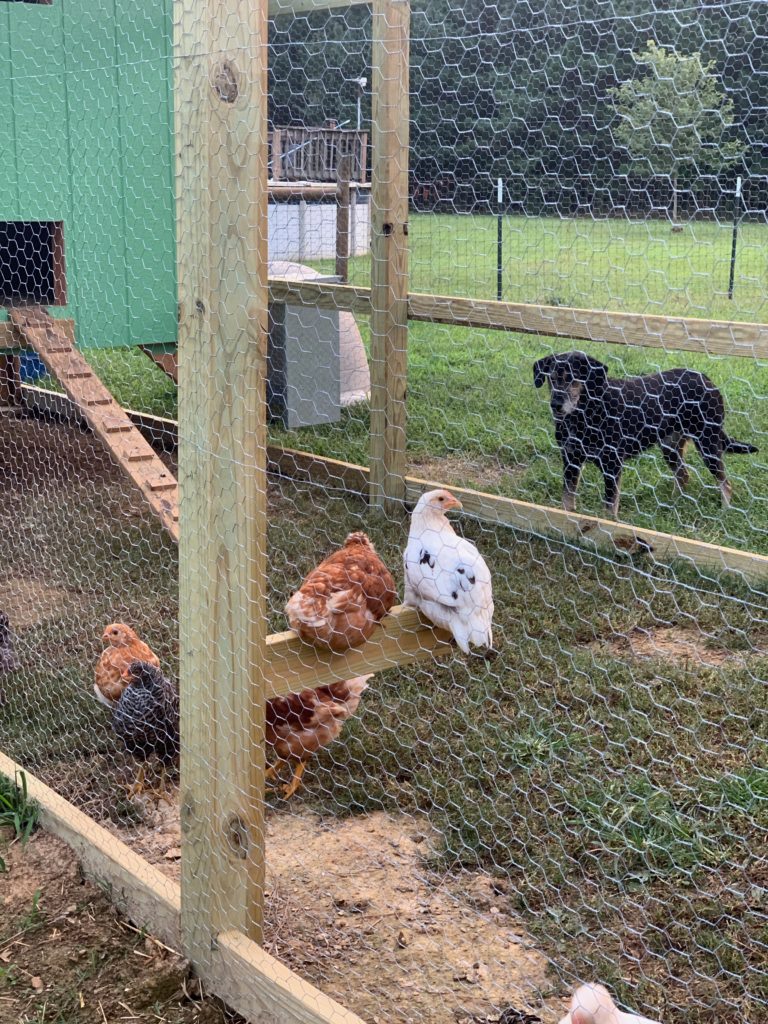
Eggshells
We did mention eggs as the obvious benefit to chickens, but after you eat your eggs, the shells can then be used to add calcium to the garden. You can add them to your compost pile whole (which is what I do, because I’m a lazy composter), or you can dry them out and pulverize them in a dedicated coffee grinder or blender. The finer you crush the eggshells, the quicker the calcium within them will become available for your plants.
Pest Management
Chickens are also great for pest management and bug patrol. At the beginning of the season (before you have planted your spring crops), let the chickens in your garden to dig up grubs and other overwintering pests. In the meantime, they will gently “till” the soil, preparing that top layer for planting. At the end of the season, chickens are great in the garden to pick off those pesky late-summer insects like grasshoppers and stink bugs.
Clearing a New Garden Area without Tilling
If you know you want to clear a new area for a garden but you don’t want to till it and you would like an alternative to sheet mulching, let your chickens in that area for a week or two. Depending on how many chickens you have and how large of an area it is, they will clear the area of weeds and grasses in short order.
How do we protect our garden from the chickens?
You may have noticed in the benefits to chickens above, we mentioned letting them in the garden before planting and after the garden season has finished. Why?
One thing about owning and raising chickens that you need to know is that they can be very destructive. There’s a specific time during the gardening seasons that you need to make sure they are not able to get to your garden, or else you won’t have much of a harvest. They like to eat from our gardens as much as we do!
During the spring before anything has been planted, it’s a great time to let your chickens roam the garden area. They get to run free while turning over your soil, finding any larva that has overwintered in your garden, and plucking out any spring weeds.
Once the seedlings have been planted, it’s best to keep them back in the coop or fenced run so that they don’t eat everything you’ve planted. If you don’t know, chickens can fly, so it’s important to keep your cages up high or put a covering on top of them.
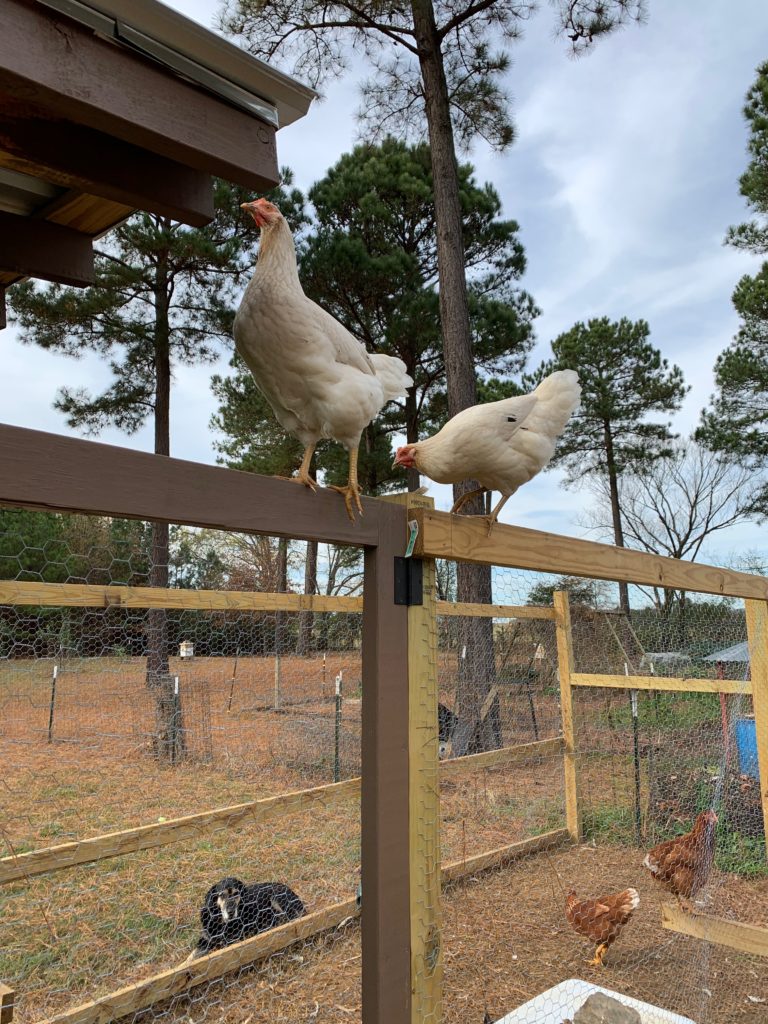
Can chickens get in the garden later in summer?
Since we know they will wreak havoc on our spring plantings, you may be wondering if they are ever able to get in the garden, especially during the summer? The short answer to that is: it depends.
This really depends on what you’re growing because the chickens can jump. While they are mostly looking on the ground, it’s a good idea to wait until your established plants are a good 2 feet tall before you turn them loose.
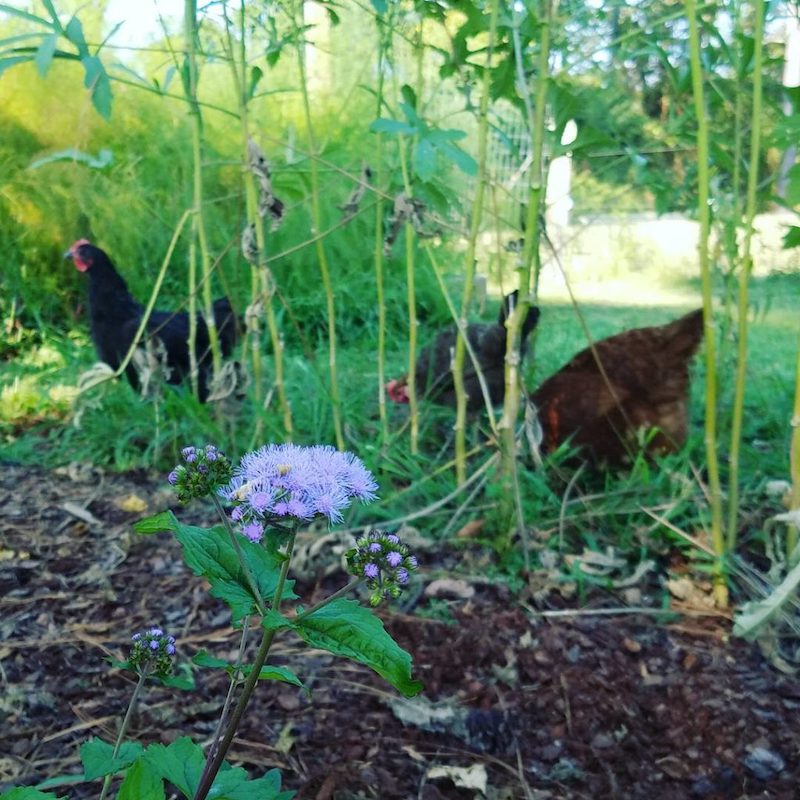
Keep in mind that they like to scratch the soil, and while your tomato or cucumber plants may grow vertically and out of their reach, they can disrupt the roots of these plants with their scratching.
Basically, yes, chickens can be helpful in a late summer garden (especially with pest insects), but be cautious and never leave them unsupervised in the garden.
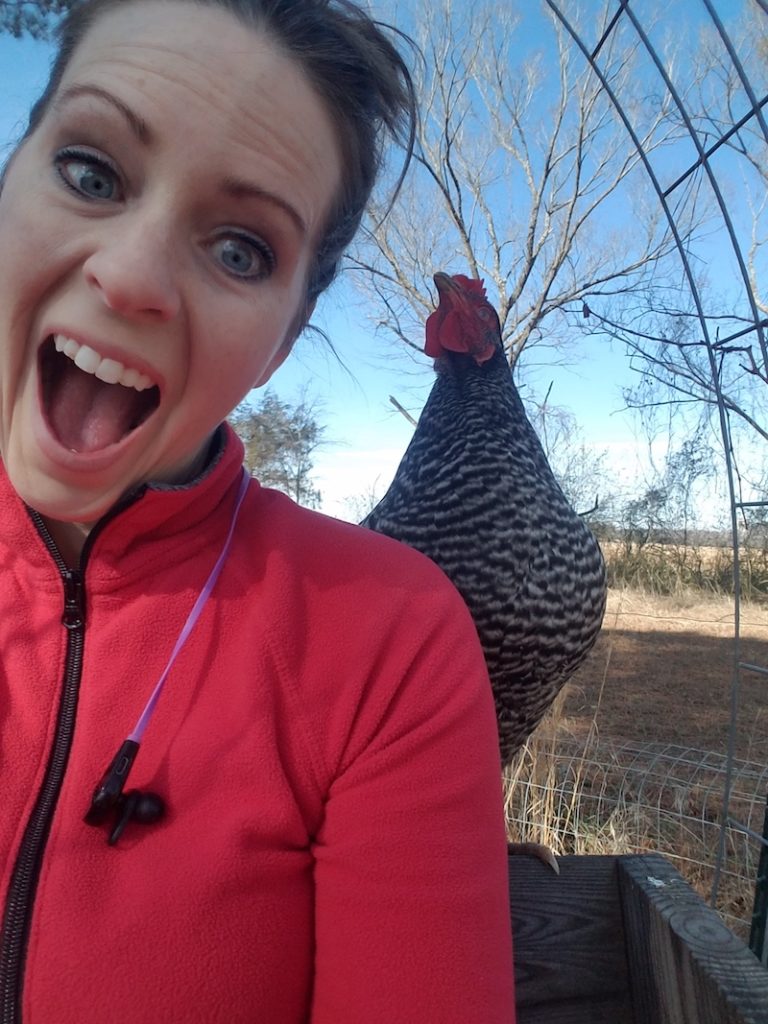
How do we protect our hens from predators?
It’s important to keep your chickens safe from predators. The most common ones are neighborhood dogs, coyotes, hawks, and foxes. Of course, a secure chicken coop and run is the first step. We also keep our hens near our dog’s run, and while she’s not a flock guardian, she deters predators.
When free-ranging your hens, I recommend you stay outside with them and supervise. In my case, letting our chickens free-range in the winter has been when they’ve been most vulnerable to predators and we’ve even lost a few to coyotes when we weren’t outside with them.
Also, understand that food sources for predators are usually lower in the fall and winter, so this is when they are the most vulnerable.
Using Chicken Tunnels to Allow Chickens to “Free Range” near the Garden while Protected
What if you want to let your chickens roam as naturally as they can, while still protecting them from predators? Is it possible to have both?
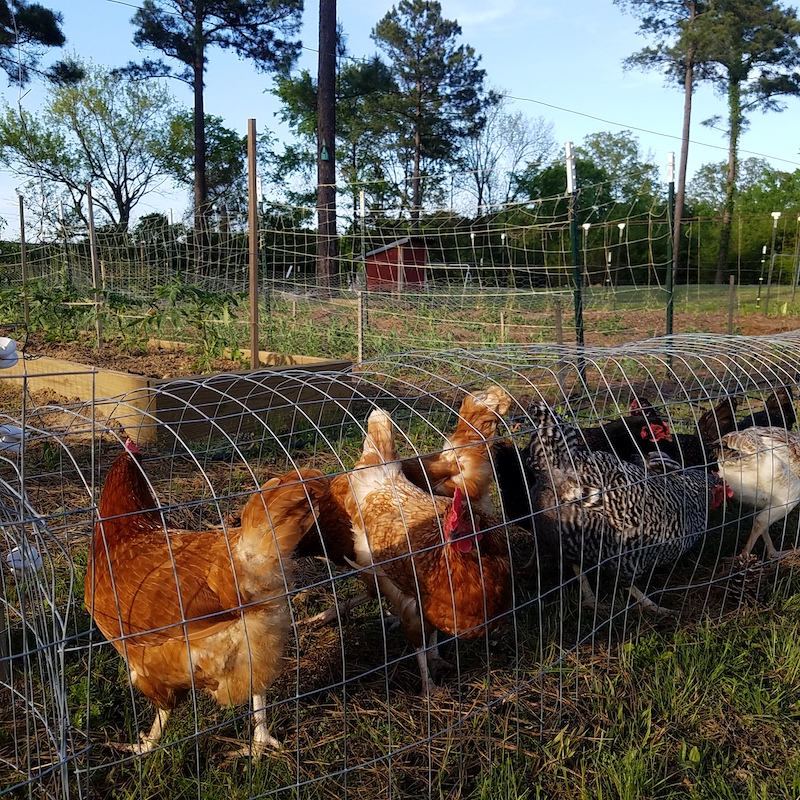
Yes, and you can find a myriad of options when you research chicken wire tunnels or chicken tractors. These setups enable your chickens to run semi-freely without as much fear of an attack.
We use chicken tunnels, attached to our chicken coop, around the perimeter of our garden. Not only are they able to catch many insects trying to invade the garden during the season, but they also [mostly] keep the perimeter of the garden free of weeds. Click below to see an excerpt of this video, demonstrating our chicken tunnels (from 1:23 to 2:10):
How do I use chicken manure in the garden?
If you aren’t familiar with chicken manure, you need to know first that it’s full of nitrogen and likely pathogens. For this reason, it must be aged before you can put it directly on the plants. Using fresh manure risks burning your plants with too much nitrogen and introducing pathogens to your food. Many gardeners let their chicken manure age (or compost down) for at least three months.
The easiest method to harvest chicken manure and have it ready for spring is to rake your entire chicken coop out at once at the end of each season. You’ll have the manure, feathers, and likely straw or pine shavings. Add this on top of your existing compost pile or make a compost pile with only these ingredients, and in a few of months, it’ll be good to use on your garden in a few months.
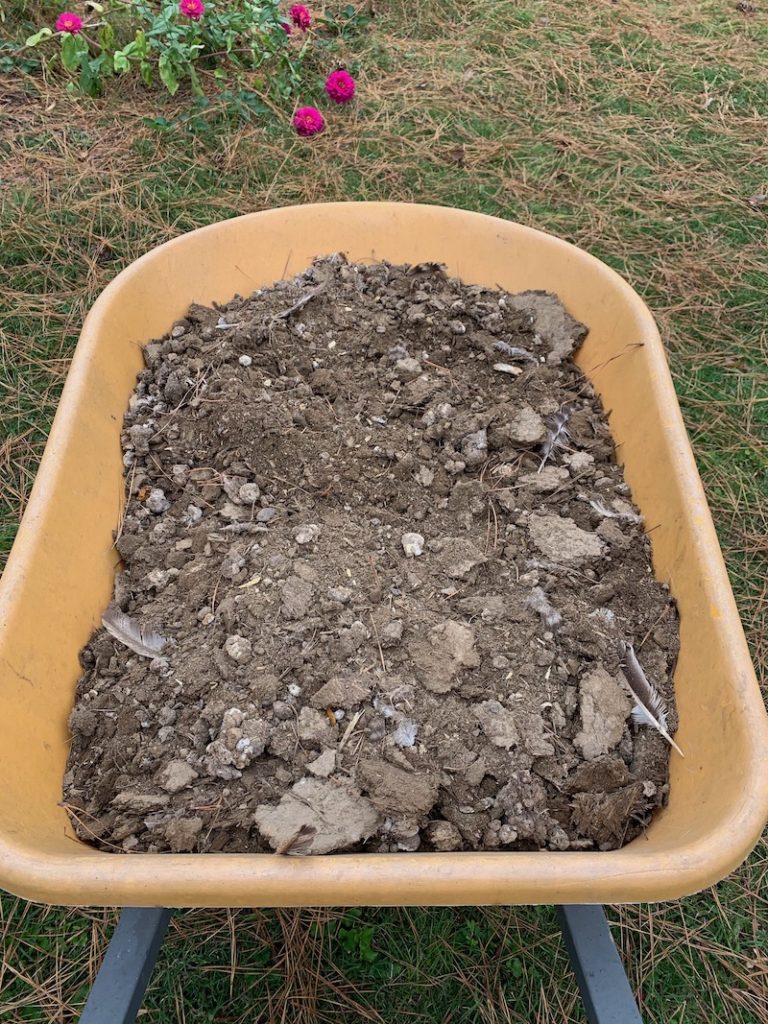
In the fall, you can apply this coop clean-out mixture directly on your garden to allow it to break down in place on your garden during the fallow season. Of course, if you’re growing a fall or winter garden, only apply this fresh mixture to areas that aren’t growing any plants.
You can use the mixture just like you would any kind of mulch. Just lay it on top of your soil and let the rain from above and the soil life from below incorporate it into your soil.
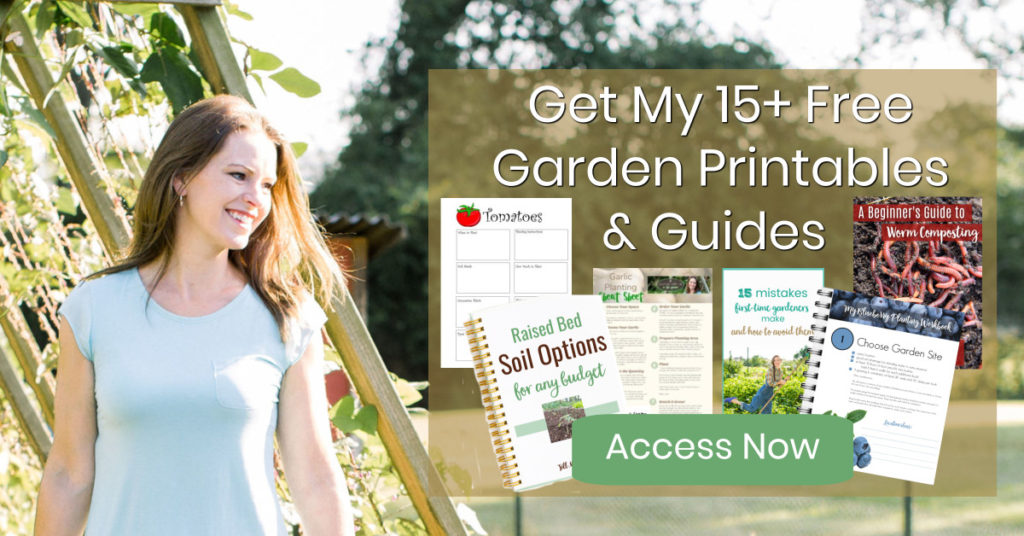
Can chickens help with composting?
If you have a compost pile, you know that it has to be turned over. Chickens picking through the pile and moving that dirt is a great thing. However, they tend to eat the worms out of the pile and that’s not a great thing. So, you really have to decide if that’s beneficial and worth it to you.
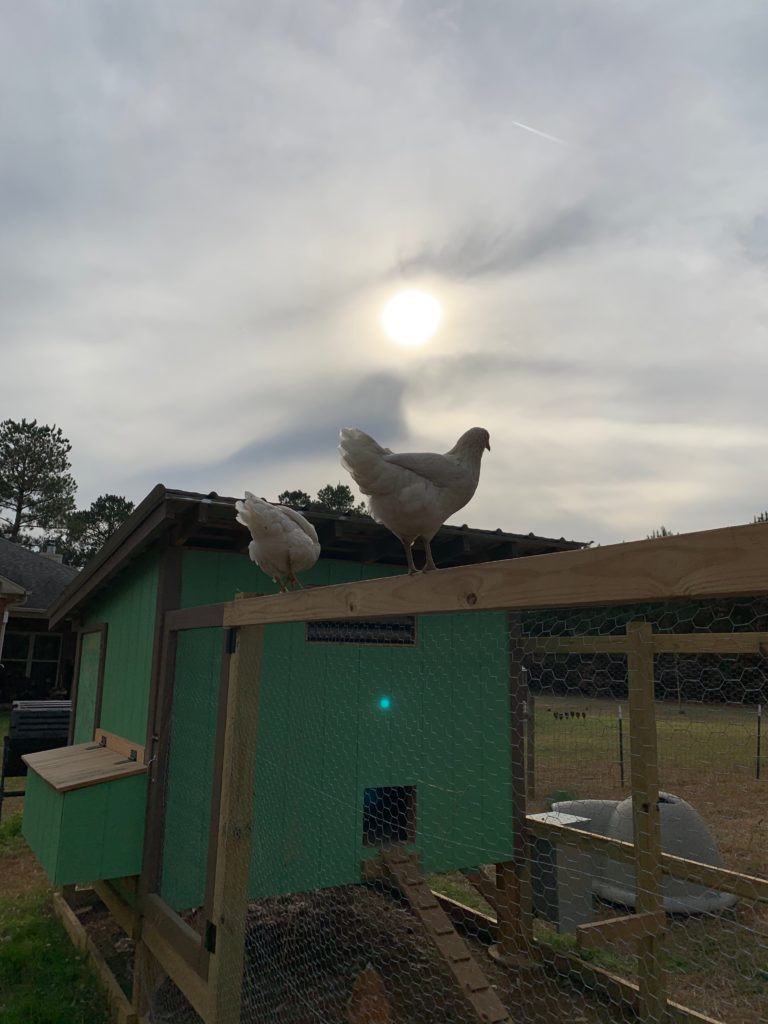
You also have to watch what you put in your compost pile if you are going to allow your chickens to get into it. If you add your coffee grounds and tea bags, this could be a problem for the chickens. Overall, it has its benefits, but it’s not without risks.
What is the deep litter method?
This is an old method invented before electricity in which you are actually composting right inside your chicken coop. In the fall, you put down your shavings or your straw. Each morning, you turn over your litter and add fresh bedding as needed. You do this all fall and winter.
In the spring, you rake up the entire coop and you’re left with a composted and aged manure that’s ready to go on the garden. It’s very easy to do and is really great for a lazy gardener. If you start to smell ammonia, you need to turn it more or add bedding.
Should I use straw or pine shavings?
This is really a preference for the gardener. If you live in a colder climate, straw is warmer and less dusty than the shavings. If you prefer shavings, look for larger pieces (don’t use sawdust). Pine shavings can be beneficial in that they have a natural pest deterrent, and pine shavings also may decompose quicker than straw.

As most things go, this often comes down to the cost. Straw can be more expensive depending on where you live. But, no matter which choice you make, steer clear of hay. Hay and straw are not the same. Hay is much wetter and can grow mold much more easily and this can be very dangerous for your flock.
While raising chickens can be a learning process at first (learn how to get started with chickens here), there are so many benefits to your garden!
If you have chickens, how have you found it best to use them for your garden? Comment below!
Do you get overwhelmed with garden planning?

Subscribe here for my best tips to plan your garden in just 7 days -- all for FREE.
Plus, I'll send you my "In the Garden E-mail" on Fridays, periodic updates on garden resources relevant to you, and you'll receive access to my entire bank of free garden downloads!
You are also agreeing to our privacy policy.

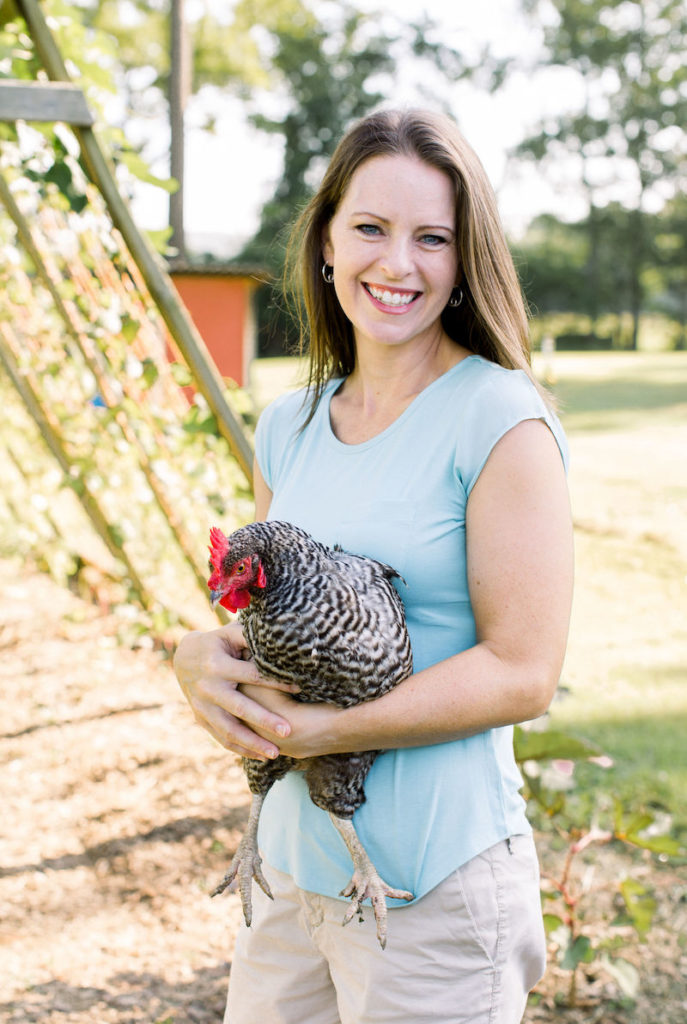
My chickens are excellent for weeding and composting the garden…. they love working alongside of me while I am in the garden. With that said, at the moment I am trying very hard to keep them away from my freshly planted seedlings. They don’t seems to understand boundaries! haha